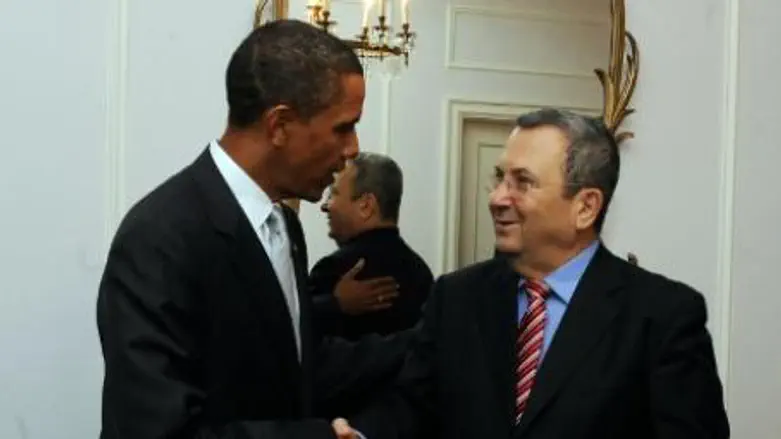
Defense Minister Ehud Barak declared Tuesday evening that President Obama agrees with Israel’s policy of “nuclear ambiguity” and added, “This is a good policy, and there is no reason to change it.”
The United States has a long-standing policy not to press Israel to declare whether it has nuclear weapons so long as Israel remains silent and does not test a nuclear weapon. The Defense Minister said that during his visit to Washington two weeks ago, all of the American officials he met “told me denuclearization efforts target Iran and North Korea."
Israel’s nuclear capability has been questioned since the closely guarded Dimona reactor was built east of Be’er Sheva in 1965, but most analysts believe the Jewish State has up to several hundred nuclear weapons.
The assumption that Israel has nuclear capability has prompted the Arab world and a growing list of European powers to insist that Israel sign the NPT.
The International Atomic Energy Agency (IAEA) reportedly has asked United Nations members to join an effort to pressure Israel to sign the treaty, which would require it to allow inspectors at the Dimona reactor. Barak told IDF Army Radio on Tuesday there is no “risk” of that happening.
Russian President Dmitry Medvedev said during his visit to Syria this week that the Middle East, meaning Israel, should be free of nuclear weapons. President Obama recently agreed to talk with Egypt about the proposal to pressure Israel into agreeing to talk about a nuclear-free Middle East.
However, U.S. Secretary of State Hillary Clinton noted last week that a “comprehensive regional peace” is necessary before nuclear safeguards can be implemented in the region.
Israeli Intelligence Minister Dan Meridor, who is one of the most dovish Likud legislators, dismissed the Egyptian initiative and IAEA pressure. "From time to time this issue is raised at the IAEA and other places," he said this week. "It's not the first time it's mentioned and it's not the first time we'll find a way, with the rest of the world, to deal with it,” he added.